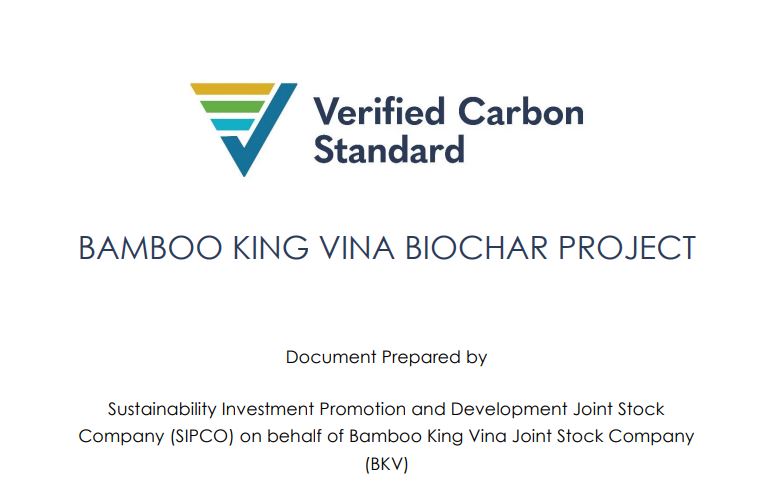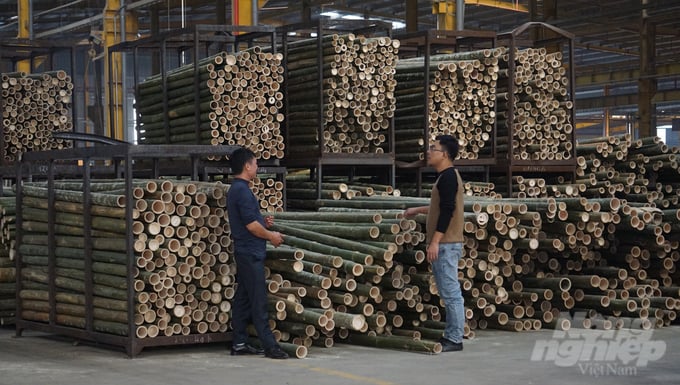Bamboo King Vina, located in Linh Son commune, Thanh Hoa province, is transforming bamboo by-products and waste into biochar, opening a new direction for forestry waste treatment, sustainable agriculture development, and access to the carbon credit market.

Each day, Bamboo King Vina (BKV), located in the Bai Bui industrial cluster, processes around 1,500 tons of bamboo and wood, generating 800–900 tons of waste, including branches, leaves, roots, bamboo scraps, and sawdust. Previously, this biomass waste was mainly burned or left to decompose outdoors, resulting in the emission of CO₂, CH₄, and particulate matter into the environment.
Since mid-2024, BKV has launched the “Bamboo King Vina Biochar” project, investing in six high-tech pyrolysis production lines. This technology burns biomass under anaerobic conditions at temperatures of 600 – 800°C, locking carbon into the resulting biochar. The gases produced during pyrolysis are captured and reused to fuel the system, significantly reducing air emissions.
The project is registered under the Verified Carbon Standard (VCS) by Verra (USA), with ID number 5108, and a crediting period from June 2024 to May 2031. The company’s current design capacity reaches 47,520 tons of biochar per year.
According to estimates, the plant will reduce and remove approximately 112,000 tons of CO₂ equivalent annually, equivalent to nearly 784,000 tons over the first seven years. This emission reduction will be internationally verified and converted into verified carbon units (VCUs), which are owned by the company. These are considered carbon removal credits, currently offered at prices ranging from USD 100 to 300 per credit.

Bamboo and Dendrocalamus (luong) at the Bamboo King Vina factory

